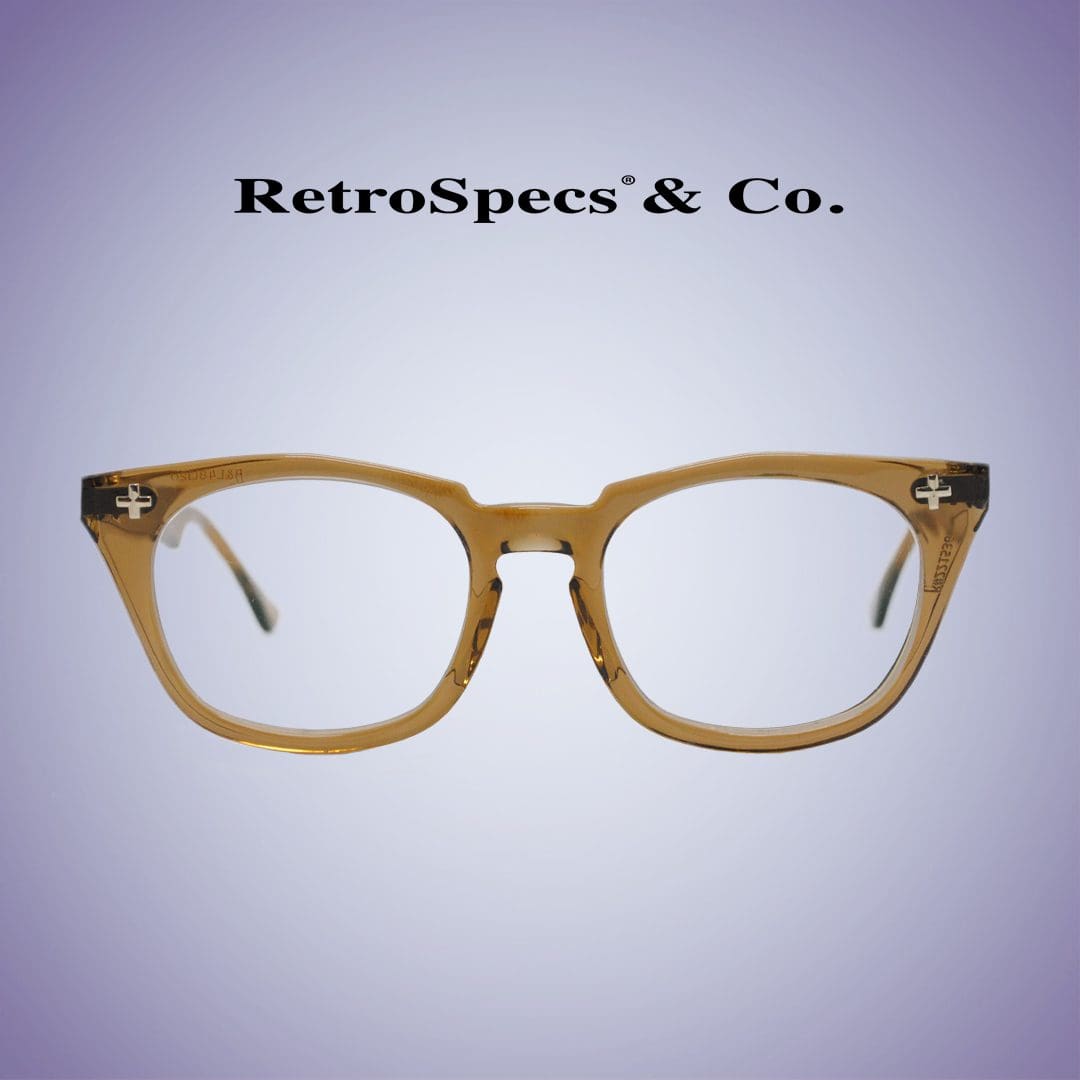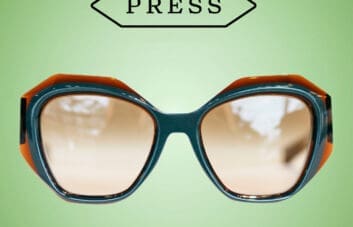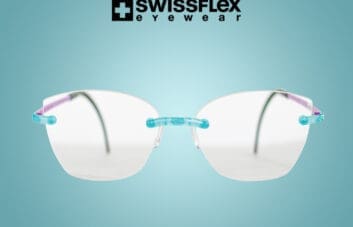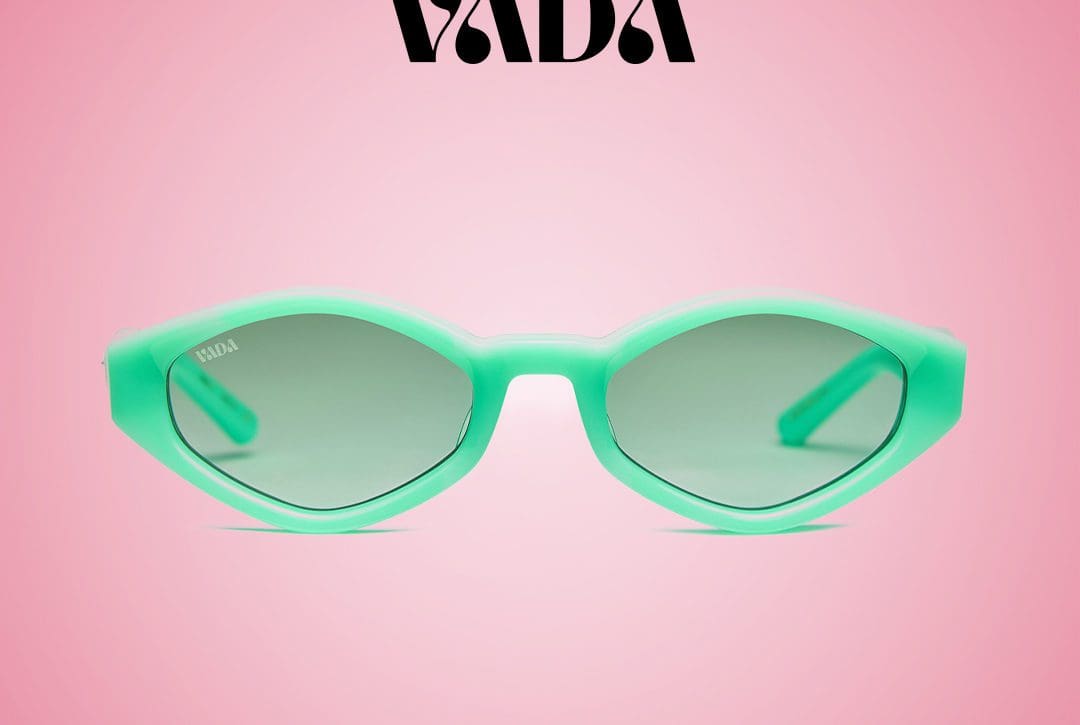RetroSpecs & Co. was founded in the back of an 18-foot recreational vehicle in 1992. Jay Owens came across and restored several pairs of gold-filled 1940s spectacles while studying languages at Lewis and Clark College. He found that the gold-filled cable temples held the lightweight frame in place while pitching for his college baseball team. Soon, friends and family were asking him to find and restore pairs of these cool, old frames for them.
Jay was seeking to travel America before getting a real job after graduation, so this was the perfect excuse. He promptly leased a Fleetwood Jamboree and hit the road in search of 1/10th 12K gold-filled American manufactured eyeglasses that he believed he could restore and resell in the antique world.
Unexpectedly, Jay discovered an enormous range in designs and quantity of these gold-filled spectacles. He decided to further research the early 20th century optical industry and found many catalogues and advertisements depicting a Golden Age of American eyewear manufacturing. Jay learned that as the rest of the industrialized world was recovering from World War I, companies such as American Optical, Bausch & Lomb and Shuron Optical began to mass produce frames in 1/10 12K gold-filled wire – a material developed by the jewelry industry that was designed to last forever.
Jay brought his collection of restored gold-filled frames to high-end optical stores in Aspen and Vail, Colorado. In the week between Christmas and New Year’s all his frames were sold.
RetroSpecs & Co. was born.
Each antique frame that enters the restoration facility in Los Angeles goes through an extensive process before receiving a Registration number approving the frame for sale.
The process begins with overnight ultrasonic cleansing. The frames are disassembled and the parts are sorted by company and design. Each part is then thoroughly examined to determine which step in the restoration process it should proceed to. RetroSpecs & Co. has researched and developed sophisticated restoration techniques that require custom made machines to do much of the work.
The late Cecil Heath, a renowned chief engineer at Shuron and Artcraft Optical, helped design more than 15 machines for soldering, swaging, milling, straightening, bending and curling that has enabled RetroSpecs to restore almost any gold-filled frame to its original condition. The final step in the restoration process is a high gloss tumble polish. Frame parts are loaded into 50-year-old oak lined barrels recovered from the original Bausch & Lomb RayBan factory. These barrels filled with walnut shells tumble for several days to burnish the 12K gold surface these frames are celebrated for.
When the parts are restored to perfection they are re-assembled to produce a frame in its original form and Bakelite nose pads or newly cast 12K solid gold nose pads are added.
In order to provide ongoing service to clients from Madison Avenue to Tokyo, RetroSpecs & Co. has developed a vast cataloguing system for historic 20th century frames.
An antique captain’s map chest housed in the RetroSpecs’ showroom on Robertson Blvd. in Los Angeles contains one piece of each gold-filled design ever collected, organized in categories of original manufacturer and style. Today the company archives have expanded to hold over 8,000 original frame designs in both gold-filled and cellulose acetate from over 150 different American and European 20th century manufacturers.
When an antique frame leaves the RetroSpecs & Co. headquarters, it receives a registration number. In addition to design information, bridge width, eye wire size, temple length, lens shape and color are recorded. With over 10 million possible variations in a historic frame; a registered number specific to each piece is stamped on a card to be given to the customer to ensure future service.
RetroSpecs & Co. antique frames have a one-year warranty and a lifetime guarantee that parts will be available for the frame.
Initially the RetroSpecs collection focused on the early modern gold-filled frames, circa 1890–1940s but it was soon apparent that if RetroSpecs was going to truly compete in the high-end optical and fashion world, the company needed to expand its offerings. Under Marya’s direction, the rimless gold-filled collections grew to over 100 custom designed shapes and sizes and Marya began the push to catalogue and restore RetroSpecs hugely popular combination and cellulose acetate frames manufactured after WWII from the 1940s-1980s.
Today, RetroSpecs’ staff of 46 craftsmen, highly skilled in the lost arts of frame shaping, precision lens drill mounting and frame polishing, produce and distribute Cuthbert & Chen and restore over 30,000 early and late modern 20th century eyeglass frames each year.




